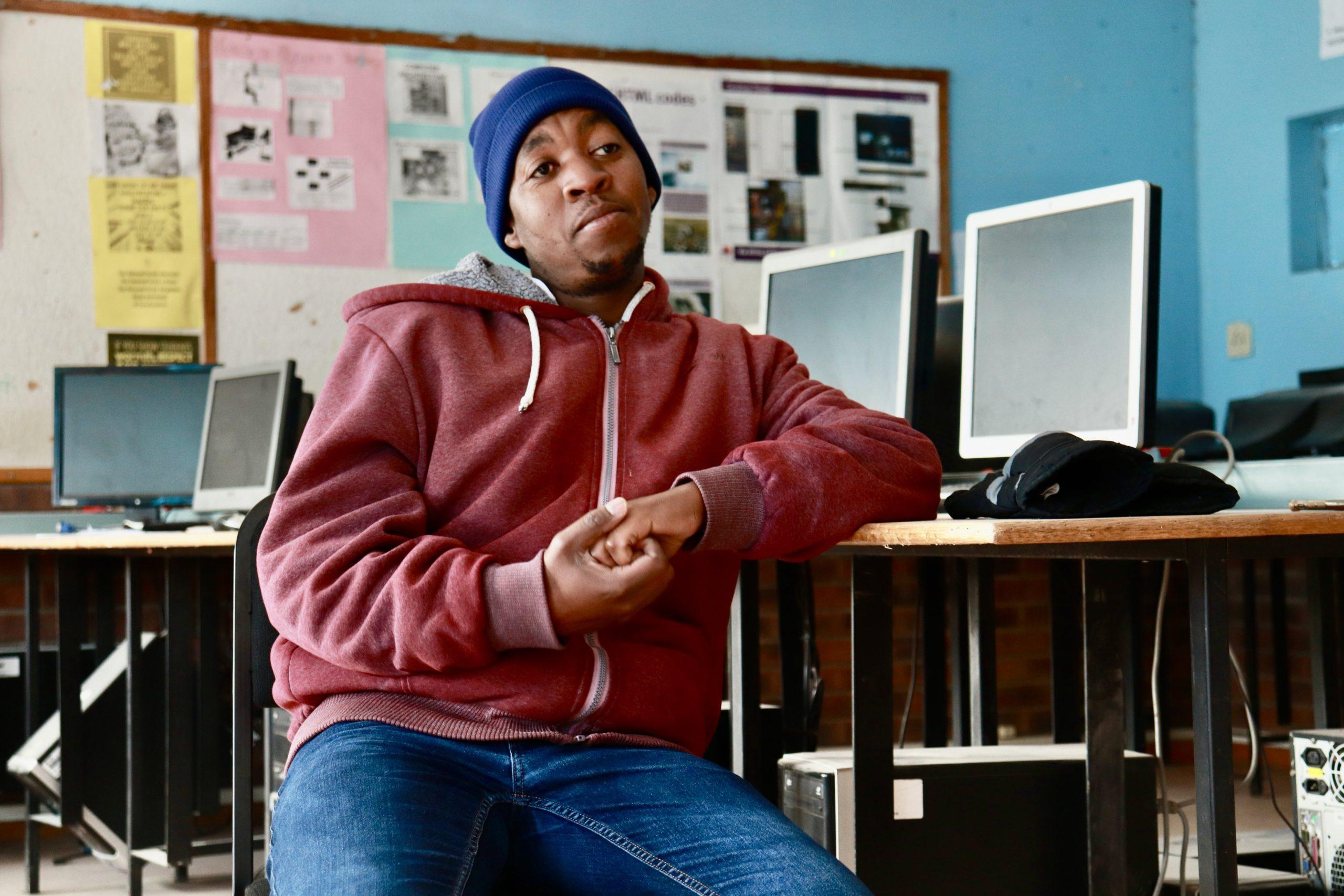Mautse, South Africa — A week after his 24th birthday, Mohlolo Eric Katsana resigned from his corporate job as a marketing consultant to fulfill his dream of being the boss of his own IT business while making a difference in the world.
Born in Welkom, the second-largest city in the otherwise mostly rural Free State province, Katsana discovered a passion for technology in fifth grade. After winning a Natural Science and Technology award at Ithabiseng Secondary School, he decided it was something he wanted to pursue.
“That’s where I decided that I would love to see myself working towards that and developing that particular technical skill,” Katsana said.
But Katsana did not touch a computer until he was in his first year of college at Boston City Campus in Bloemfontein. That year, 2014, he earned a networking specialist certificate, the first of nine academic and professional certifications in IT and business.
After quitting his job in marketing at Blackbird Trading in Bloemfontein, Katsana founded Independent ICT Consultant, a company that provides IT support, training and media development services. But Katsana also uses his IT knowledge and his business to pursue his other passion: activism.
A current resident of Mautse, an apartheid-era Black township in the Free State, Katsana has brought his technological skills to the community. With the help of a mentor, Katsana secured 20 donated computers that went to Taung Secondary School and Tshepo Generation Soup Kitchen, a nonprofit organization that helps Mautse youth experiencing food insecurity and poverty.
The computers are used by local children to practice and learn digital literacy. According to South Africa’s 2021 General Household Survey, 27.3 percent of South African homes have computers. (In comparison, in the U.S., 91.8 percent of homes in 2018 had computers, according to a 2021 United States Census Bureau report).
Hossana Twinomurinzi is the head of the Centre for Applied Data Science at the University of Johannesburg. He said it is rare for South African children in secondary and primary schools to have access to computers at that age, let alone to learn how to use them.
“It’s a huge challenge,” Twinomurinzi said. “It’s not enough to be able to have them. One has to also be able to use them productively.”
At Tshepo, Katsana teaches children basic computer literacy, including how to type their name, how to set up a profile and what the components of a computer are. On a recent Wednesday afternoon in mid-June at the Tshepo Generation Soup Kitchen, Katsana had a few desktop computers set up in the corner of the room. Five children gathered around as Katsana showed them what each button did.

Katsana’s efforts at Tshepo align with his larger goal to build a community computer center.
“The plan was to establish a center where I can teach and the community can come and be able to learn computer skills,” Katsana said. “They can be able to breach the unemployment rate, where they can even get certified and try to get a job with that certification.”
Both at the school and at Tshepo, funding has posed problems to that goal. A lot of the donated equipment is outdated and needs to be repaired. Moreover, internet connectivity is spotty.
“There’s a lot of things that need to be done,” Katsana said. “I have to replace the server. I have the computers, but now the server is too old. If that can be replaced, then I will be able to establish the full capacity of it.”
Katsana said he knows that with all of his qualifications, he could be back in the corporate world, making a lot more money.
“I can get a job,” Katsana said. “I can apply now, and believe me, in three weeks’ time, I’ll get it. But since I’ve started the business and have started the programs, I have seen the effects of it.”
At the university level, there is a growing interest in people studying information technology ((T), according to Muni Kooblal, Ph.D, chief academic registrar at Richfield College in Durban.
“The biggest uptake at our college is in the IT field,” Kooblal said. “The number of people that are employed, the highest percentage, is in the IT field.”
But something bigger drives Katsana as he works to make technology accessible to more members of his community.
“I believe in making an impact not only in business but in society,” Katsana said.
Long-term Katsana said he dreams of establishing a college that is focused on entrepreneurship, innovation and technology.
“I’m looking into the future of this country and making an impact not just in South Africa but in Africa as a whole,” Katsana said.
For now, a small group of Mauste youth clamored for Katsana’s attention as he explained the parts of a computer. Screwdriver in hand, Katsana opened up the old CPU and assigned each child a part to help them remember.
“Motherboard.” “Hard drive.” “RAM.”
As the children repeated the names correctly back to him, Katsana danced and sang for them, as he promised them he would, a smile on his face.














































